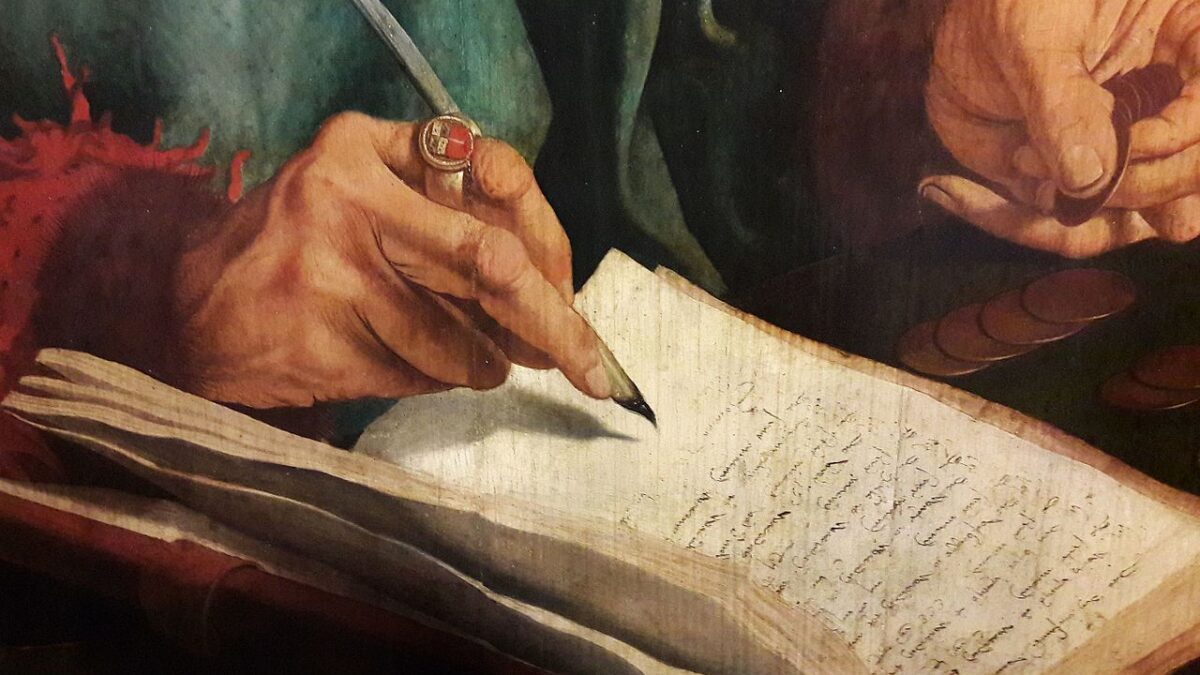A controversial Oct. 5 article in Science Magazine claims to confirm a 2021 study of human footprints in White Sands National Park in New Mexico that suggested humans were in North America about 23,000 to 21,000 years ago, and thus several thousand years earlier than archaeologists have typically believed. Among the many responses to this news, the most bizarre take from the research must surely go to Kim Pasqual-Charlie, a member of the Pueblo of Acoma.
“For many Indigenous people, the study is simply a confirmation of things they already knew from knowledge passed down over generations” reports The Washington Post. “These are our ancestral footprints,” Pasqual-Charlie explained.
It’s certainly possible that the footprints are those of local indigenous peoples’ ancient ancestors — whose else would they be, given they were fossilized in New Mexico? But her claim that the research confirms the oral history of her indigenous tribe is remarkable, apparently indicating her belief that the Pueblo have retained an oral tradition that their ancestors have been traversing the Southwest for some time earlier than the typical historical assessments, which put the number at about 16,000 years ago.
Indeed, later in the same WaPo article, she demands: “How much more evidence do you need to say: We did exist back then. We’ve been in the Southwest region for a very long time.” Pasqual-Charlie’s evidenceless assertion is as absurd as it is entirely unverifiable. But that a major U.S. newspaper would even approvingly cite it demonstrates how willingly our elite cultural institutions indulge the most ridiculous claims in the name of “woke” ideology.
Patronizing People’s Delusions
To put the Pasqual-Charlie claim in perspective, consider the fact that humans have only had written language for about 5,500 years. Alternatively, cultures that lack written languages, instead relying on oral traditions to communicate their folklore, mythology, and socio-cultural rites, are capable of verbally passing down information for many generations. Perhaps, some historians and anthropologists have surmised, these oral traditions may be related to real ancient events that happened thousands of years ago. However, these arguments are usually based on the most specious of speculation, given the obvious difficulty in effectively verifying some folk tale with a specific event like, say, a natural disaster or a human migration.
In other words, the likelihood that a particular culture, even one with strong oral traditions, would maintain stories that could reasonably date how long they have lived in a particular place, or how they got there in the first place, is about as likely as you and your mother simultaneously winning the lottery.
To wit, it was not any oral tradition in Middle Eastern, European, or Asian culture that led the majority of scientists to assess the human species originated out of Africa, but via human fossils and archaeological remains. With all due respect to Ms. Pasqual-Charlie, assertions — even innocent, well-intentioned ones — about ancient oral traditions regarding the duration of human existence in the Americas are simply balderdash.
And yet, really, who is most to blame for this woman’s quotation appearing in national media but The Washington Post itself? It is WaPo that is cynically patronizing Pascqual-Charlie and her entirely unconfirmable claims for the purported sake of foregrounding the voices of marginalized peoples, as they’d likely put it. But this example is just the tip of the iceberg.
Media, Hollywood, and Academia Rewrite History
Consider our northern neighbor Canada, which for the last few years has been embroiled in a controversy over alleged mass graves of indigenous children at government-funded and church-run residential schools from the late 19th century to the late 20th century. In response to the supposed “discovery” of these graves, enraged activists, egged on by leftist media and academia, burned down dozens of Canadian churches, many of which served indigenous communities.
Then earlier this year a series of excavations at suspected sites found no human remains. Perhaps this is not surprising for a society whose elites have become obsessed with virtue signaling about the historical oppression of indigenous peoples, manifested in the widespread normalization of ludicrous land acknowledgments at public events. Yet even these recent findings have not stopped filmmakers from perpetuating these lies: The new film “Bones of Crows” presents the residential schools as part of a state-sponsored program of genocide.
Or consider the 2022 Hollywood release of “The Woman King,” a “historical action epic” about the West African kingdom of Dahomey (present-day Benin), a supposedly noble and peaceful society guarded by the elite all-female Agojie army that resisted the brutal, dehumanizing slave trade. The film hit all the right notes on contemporary racial and gender narratives and was thus widely celebrated by corporate media and academics.
Except the king of this allegedly utopian kingdom rose to power via a coup supported by slave traders. In fact, Dahomey was the one aggressively attacking and enslaving its neighbors. And the Agojie were at the forefront of this cruelty, capturing sex slaves for their king, who was also a practitioner of human sacrifice.
Indulging Falsities Does Nobody Favors
By promoting these false histories, we undermine the study of history, transforming it from a careful attempt to impartially understand our flawed collective past into a politicized weapon with which to beat ideological opponents. We also vitiate what little remains of our civic unity, exploiting the past to further racial and gender narratives — e.g. white people are venal oppressors, and racial and sexual minorities are innocent, noble heroes — that are themselves facile and divisive, when they aren’t blatantly false and slanderous (ahem, 1619 Project). And we encourage a suspicious, conceited view of the past, cynically reinterpreting our civilization’s achievements as little more than contemptible, corrupt power plays.
Historical revisionism also harms those it aims to help. Racial minorities and indigenous peoples certainly need their own unique histories told and celebrated. But falsely valorizing and whitewashing their past for the sake of “foregrounding” them treats them not as equals able to know the entirety of their history, but as fragile snowflakes incapable of confronting the truth.
Growing up in suburban Northern Virginia, I attended public school with many classmates whose families had accomplished great things, or who had illustrious, well-documented lineages. I remember asking my parents about our own family history and learning that both my Anglo-Irish and Polish heritage included nothing especially noteworthy. I was, I learned, of mostly working-class immigrant extraction, and as far as my parents and grandparents knew, my old-country ancestors, whose names faded in the distant past, were largely the same.
I was embarrassed about my humble origins. There were no great historical figures, no remarkable family feats recorded in the history books. Yet as I got older, I learned to appreciate those qualities of my family that were indeed admirable: a grandfather who courageously started his own business as a middle-aged father, and great-grandfathers who served as enlisted men in the trenches during World War I. In an age in which everyone needs to be a celebrity and descendant of celebrities, I’ve come to gratefully accept that even if my ancestors were not necessarily wealthy or powerful or brilliant, they labored, suffered, and prayed in order to give the next generation a fighting chance to flourish.
We should be encouraging all Americans, be they members of indigenous tribes, descendants of the earliest colonists, or the recent arrivals to our shores, to cultivate that same humble mentality. Not only because it fosters virtue, but because the truth is always better than our delusions, no matter how well-intentioned.







